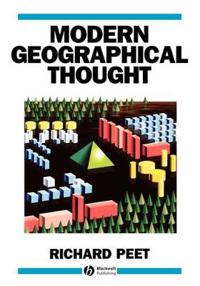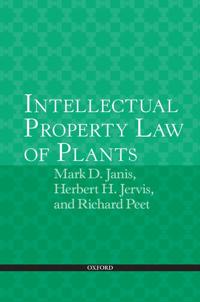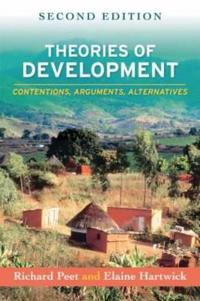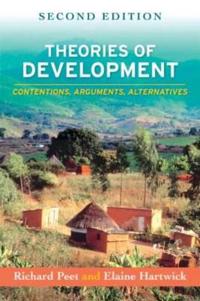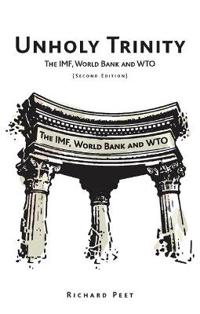Modern Geographical Thought (Häftad)
avRichard Peet, Peet
ISBN: 9781557863782 - UTGIVEN: 1998-06Richard Peet looks in detail at the main trends in human geographic thought over the last thirty years, relating these to broader themes in philosophy and social theory. Beginning with existential phenomenology and humanistic geography, the book covers Marxism and radical geography, structuralism, s[...]
Intellectual Property Law of Plants (Pocket)
avMark D. Janis, Herbert H. Jervis, Richard Peet
ISBN: 9780198700913 - UTGIVEN: 2014-03Plant intellectual property law is a complex proposition which stands apart from other intellectual property endeavours, and this book seeks to elucidate on the key issues involved. This work encompasses aspects of plant innovation and related law in the US and overseas providing a global perspectiv[...]
Theories of Development (Storpocket)
avRichard Peet, Elaine Hartwick
ISBN: 9781606230657 - UTGIVEN: 200903Widely adopted, this unique text critically evaluates the leading theories of international economic development, from classical economic and sociological models to Marxist, poststructuralist, and feminist perspectives. No other book provides such comprehensive coverage or links the theories as inci[...]
Theories of Development (Inbunden)
avRichard Peet, Elaine Hartwick
ISBN: 9781606230664 - UTGIVEN: 200904Widely adopted, this unique text critically evaluates the leading theories of international economic development, from classical economic and sociological models to Marxist, poststructuralist, and feminist perspectives. No other book provides such comprehensive coverage or links the theories as inci[...]
Unholy Trinity (Häftad)
avRichard Peet
ISBN: 9781848132528 - UTGIVEN: 200905Who really runs the global economy? Who benefits most from it? The answer is a triad of 'governance institutions' - The IMF, the World Bank and the WTO. Globalization massively increased the power of these institutions and they drastically affected the livelihoods of peoples across the world. Yet th[...]

